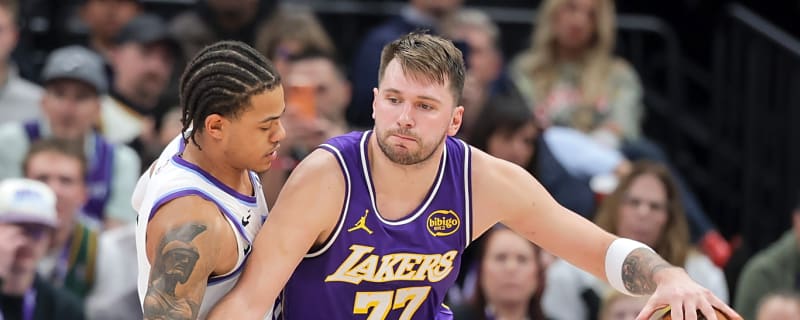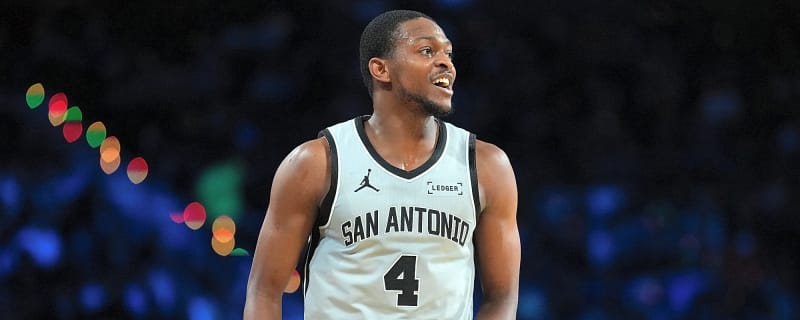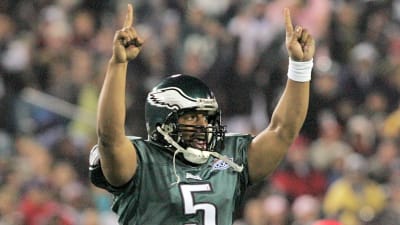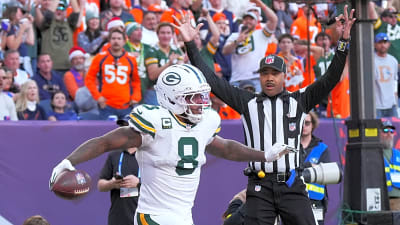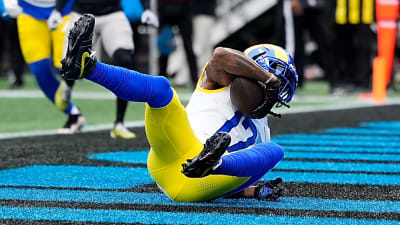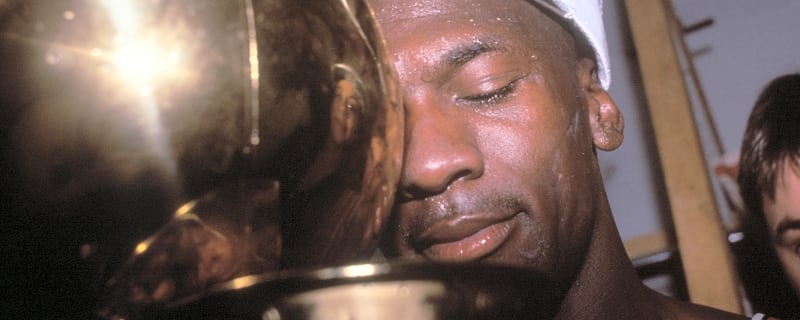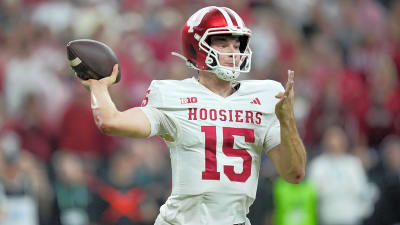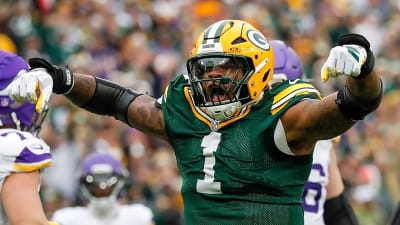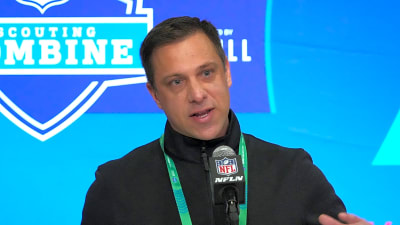- Home
- Quizzes
- My Quiz Activity
- Newsletters
- MY FAVORITES
- Add Sports/Teams
- SPORTS
-
NFL
- NFL Home
- Arizona Cardinals
- Atlanta Falcons
- Baltimore Ravens
- Buffalo Bills
- Carolina Panthers
- Chicago Bears
- Cincinnati Bengals
- Cleveland Browns
- Dallas Cowboys
- Denver Broncos
- Detroit Lions
- Green Bay Packers
- Houston Texans
- Indianapolis Colts
- Jacksonville Jaguars
- Kansas City Chiefs
- Las Vegas Raiders
- Los Angeles Chargers
- Los Angeles Rams
- Miami Dolphins
- Minnesota Vikings
- New England Patriots
- New Orleans Saints
- New York Jets
- New York Giants
- Philadelphia Eagles
- Pittsburgh Steelers
- San Francisco 49ers
- Seattle Seahawks
- Tampa Bay Buccaneers
- Tennessee Titans
- Washington Commanders
-
MLB
- MLB Home
- Athletics
- Arizona Diamondbacks
- Atlanta Braves
- Baltimore Orioles
- Boston Red Sox
- Chicago White Sox
- Chicago Cubs
- Cincinnati Reds
- Cleveland Guardians
- Colorado Rockies
- Detroit Tigers
- Houston Astros
- Kansas City Royals
- Los Angeles Angels
- Los Angeles Dodgers
- Miami Marlins
- Milwaukee Brewers
- Minnesota Twins
- New York Yankees
- New York Mets
- Philadelphia Phillies
- Pittsburgh Pirates
- San Diego Padres
- San Francisco Giants
- Seattle Mariners
- St. Louis Cardinals
- Tampa Bay Rays
- Texas Rangers
- Toronto Blue Jays
- Washington Nationals
-
NBA
- NBA Home
- Atlanta Hawks
- Boston Celtics
- Brooklyn Nets
- Charlotte Hornets
- Chicago Bulls
- Cleveland Cavaliers
- Dallas Mavericks
- Denver Nuggets
- Detroit Pistons
- Golden State Warriors
- Houston Rockets
- Indiana Pacers
- Los Angeles Clippers
- Los Angeles Lakers
- Memphis Grizzlies
- Miami Heat
- Milwaukee Bucks
- Minnesota Timberwolves
- New Orleans Pelicans
- New York Knicks
- Oklahoma City Thunder
- Orlando Magic
- Philadelphia 76ers
- Phoenix Suns
- Portland Trail Blazers
- Sacramento Kings
- San Antonio Spurs
- Toronto Raptors
- Utah Jazz
- Washington Wizards
-
NHL
- NHL Home
- Anaheim Ducks
- Boston Bruins
- Buffalo Sabres
- Calgary Flames
- Carolina Hurricanes
- Chicago Blackhawks
- Colorado Avalanche
- Columbus Blue Jackets
- Dallas Stars
- Detroit Red Wings
- Edmonton Oilers
- Florida Panthers
- Los Angeles Kings
- Minnesota Wild
- Montreal Canadiens
- Nashville Predators
- New Jersey Devils
- New York Islanders
- New York Rangers
- Ottawa Senators
- Philadelphia Flyers
- Pittsburgh Penguins
- San Jose Sharks
- Seattle Kraken
- St. Louis Blues
- Tampa Bay Lightning
- Toronto Maple Leafs
- Utah Mammoth
- Vancouver Canucks
- Vegas Golden Knights
- Washington Capitals
- Winnipeg Jets
- NCAAF
- NCAAM
- Olympics
- Boxing
- Entertainment
- Lifestyle
- Golf
- MMA
- Soccer
- Tennis
- Wrestling
- Sports Betting
- More Sports
- RESOURCES
- My Account
- YB on Facebook
- YB on Twitter
- YB on Flipboard
- Contact Us
- Privacy Policy
- Terms of Service
Pelicans' James Borrego no longer needs interim tag as win streak continues
James Borrego is an interim coach in name only.

Draymond Green is making it easy for Warriors to imagine life without him
For over a decade, Draymond Green has been indispensable to the Golden State Warriors. But the combination of his erratic behavior and the team's success with Green out makes the prospect of a Warriors team without their defensive leader much easier to imagine.

Who should really start the 2025 NBA All-Star Game?
Here's the starting five that should represent each conference for the 2025 NBA All-Star Game.
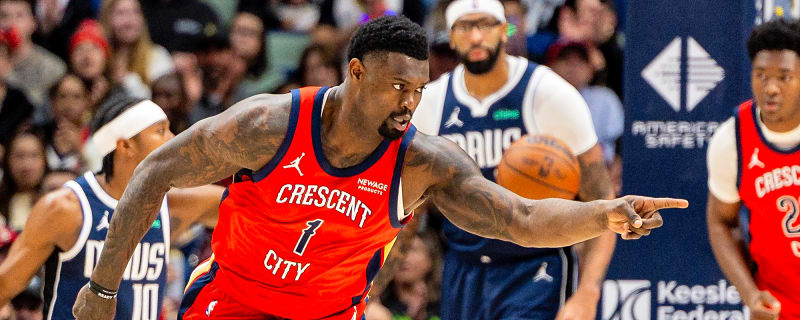
Zion Williamson's impressive play off bench leads Pelicans to fifth straight win
Led by their superstar in a new role, the New Orleans Pelicans have now won five games in a row.

The 'NBA Christmas Day 40-point games' quiz
In NBA history, a player has scored 40 or more points on Christmas Day on 30 occasions. How many of those can you name in five minutes?

Nuthin' but a GSW thang: Snoop Dogg to announce Warriors-Clippers game
It's another move in the surprisingly broad career of Snoop Dogg.
Which NBA teams have the best Christmas Day records?
Christmas and the NBA go hand-in-hand. The day serves for the top hoops league in the world, like Thanksgiving for the NFL. However, while the Detroit Lions and Dallas Cowboys are perpetual Thanksgiving participants, the NBA has mixed up the matchups and the teams throughout the years.
Is Cade Cunningham or Jalen Brunson the best point guard in the Eastern Conference?
Both altered the direction of their organizations.
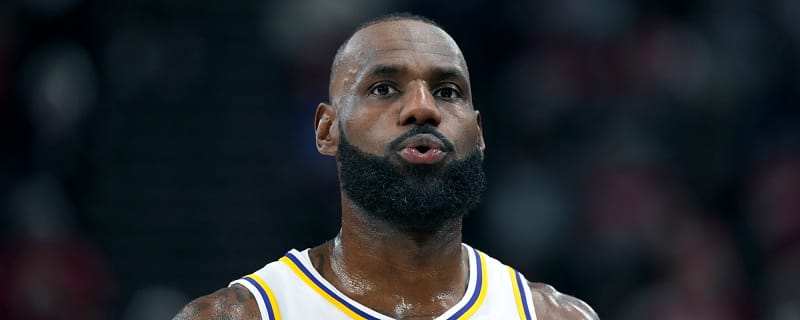
LeBron James won't take Chris Paul's side in feud with Clippers
The Clippers' decision to move on from Paul has drawn considerable criticism.
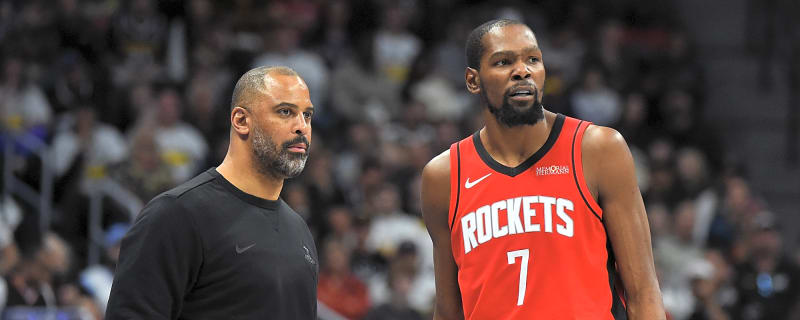
Kevin Durant, Reed Sheppard lead Rockets to convincing win over Nuggets
Just one game after blowing a massive first-half lead, the Houston Rockets bounced back in a major way with a 115-101 win over the Denver Nuggets.
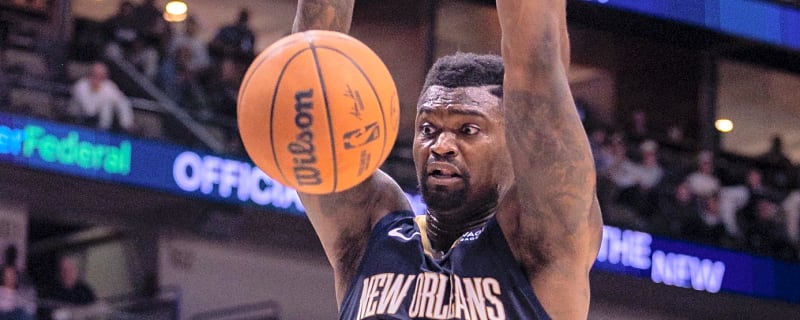
Red-hot Pelicans extend win streak behind Zion Williamson's big night
The 2025-26 season has not gone quite how the New Orleans Pelicans had envisioned. The never-ending injury saga surrounding star Zion Williamson has played
The '60-point NBA games' quiz
Throughout NBA history, only 39 players have scored 60 or more points during an NBA regular-season game. How many of the 39 can you name in five minutes?

Warriors have a Draymond Green problem
While Green still makes an impact on the defensive end, it's a smaller impact than he used to, while he's having his worst offensive season of his career.
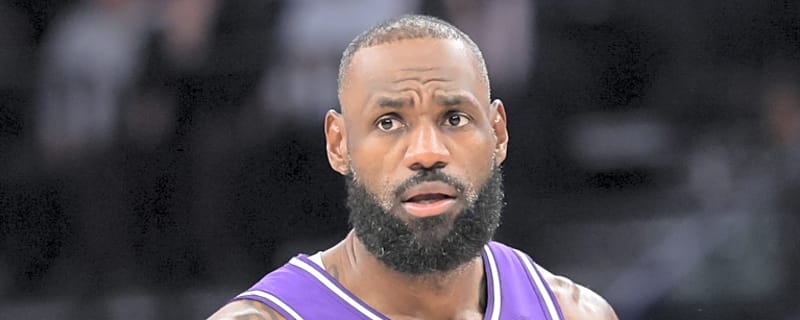
LeBron James has fans concerned with his 'YouTube golf' quip
James has proven this season that he is still capable of playing at a high level, but many fans are concerned that the Los Angeles Lakers star's motivation is starting to wane.

Five under-the-radar teams that should be sellers ahead of the NBA trade deadline
It’s Christmas time in the NBA and that means trade season is upon us.

Jalen Brunson, Mike Brown open up about Knicks' Madison Square Garden banner decision
The New York Knicks surprised and also delighted pockets of fans when they decided to not hang a banner inside Madison Square Garden commemorating their NBA Cup victory.
The 'NBA 6th Man of the Year winners' quiz
The NBA Sixth Man of the Year Award is given to the player who provides invaluable bench contributions over the course of a season. How many of the past winners can you name in five minutes?

Lakers hoping offense wins championships
The conventional wisdom is that defense wins championships. The Lakers are hoping offense wins championships, too.
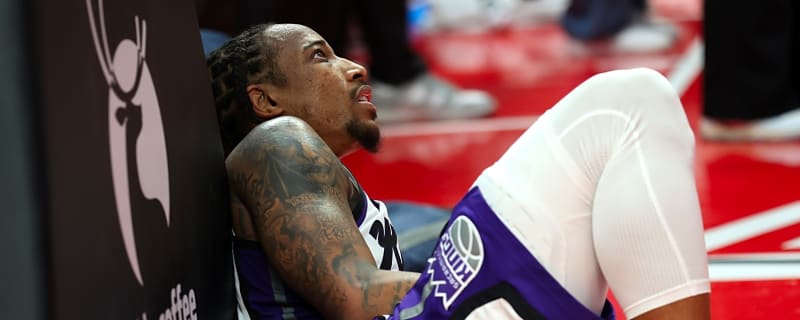
Questionable foul call ruins epic Kings comeback
Trailing by 15 points with under two minutes to play, DeMar DeRozan and Russell Westbrook led a furious Sacramento Kings comeback to force overtime. But with seconds remaining in what would have been Sacramento's best win of the season, referee Marc Davis called a game-deciding foul from well behind the play.
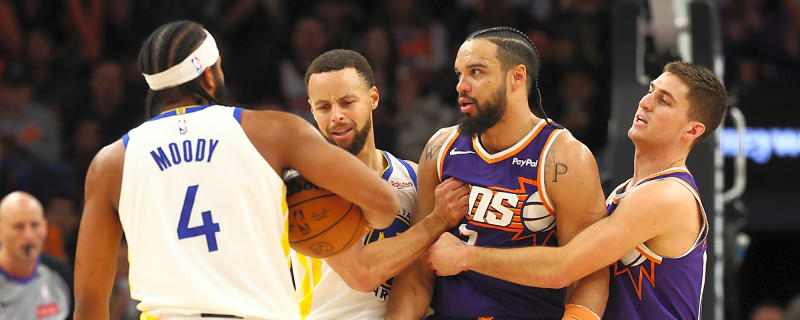
Suns escape Warriors despite more Dillon Brooks foolishness
Brooks making wildly undisciplined plays in consecutive games bodes poorly for his future and that of his team this season.

Clippers have made a decision about trading Kawhi Leonard, James Harden
The Los Angeles Clippers' season has been an absolute nightmare so far, leading to speculation that the franchise may look to reset.
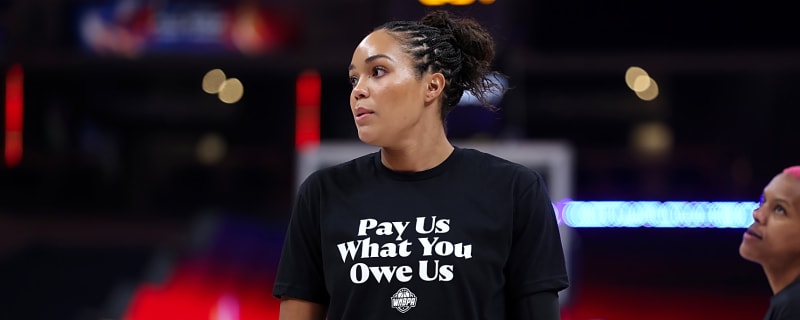
WNBA moves closer to labor strike following Players Association vote
The WNBA moved one step closer to its doomsday scenario on Thursday.

Pistons' J.B. Bickerstaff getting last laugh on his old team
After he brought the team back to respectability, the Cleveland Cavaliers fired their old coach J.B. Bickerstaff in 2024. Since then, he's turned the Detroit Pistons around.
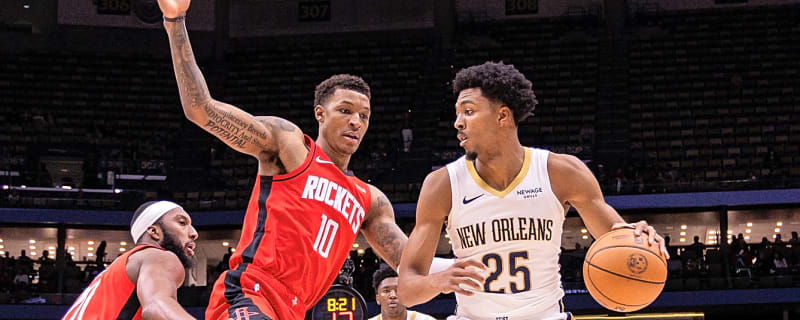
Rockets' second-half collapse to lowly Pelicans leads to third loss in four games
Houston led New Orleans by as many as 25 points in the second half.

Jalen Brunson sinks game-winner to complete Knicks' 15-point comeback
There is a reason that New York Knicks superstar point guard Jalen Brunson is considered "Mr. Fourth Quarter." And Brunson showed why on Thursday night.
Breaking News
Trending News
My Favorites
Customize Your Newsletter
 +
+
Get the latest news and rumors, customized to your favorite sports and teams. Emailed daily. Always free!
PRIVACY POLICY EDITORIAL POLICY CONTACT US
ABOUT YARDBARKER TERMS OF SERVICE
Use of this website (including any and all parts and
components) constitutes your acceptance of these
Terms of Service and Privacy Policy.
This site is for entertainment purposes only.
There is no gambling offered on this site.
Gambling Problem? Call 1-800-Gambler.

 Free Newsletters
Free Newsletters

